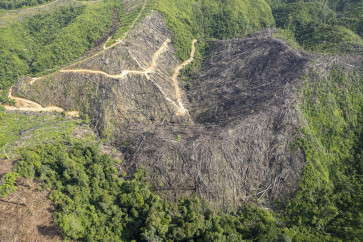Popular Reads
Top Results
Can't find what you're looking for?
View all search resultsPopular Reads
Top Results
Can't find what you're looking for?
View all search resultsRI pushes for treaty against theft of genetic resources and culture
In a move that will likely cause unease among Western academics and artists, Indonesia and other developing countries are pushing for a legally binding treaty to protect their precious natural resources and cultural heritage from being "stolen" or "misused" by other countries
Change text size
Gift Premium Articles
to Anyone
I
n a move that will likely cause unease among Western academics and artists, Indonesia and other developing countries are pushing for a legally binding treaty to protect their precious natural resources and cultural heritage from being "stolen" or "misused" by other countries.
Director for legal treaties on economic and cultural affairs at Indonesia's Foreign Ministry, Damos Dumoli Agusman, said 33 Asian and African countries would gather in Bali from Nov. 23 to Nov. 27 to prepare a draft treaty that will be brought before a meeting of the World Intellectual Property Organization (WIPO) and the Intergovernmental Committee on Intellectual Property and Genetic Resources, Traditional Knowledge and Folklore (IGC) to be held in Geneva in December.
"We hope to finalize the draft soon because we cannot afford to let developed countries, which oppose our initiative, to come up with a resolution ahead of us," Damos told reporters here Wednesday, adding that Indonesia and South Africa were leading the effort to pass the treaty.
Indonesia, like many developing countries, is biologically-diverse, with abundant genetic resources and traditional cultural expressions which Damos claimed had been "exploited" by other parties, mainly due to lack of clear regulations regarding their use and protection.
Indonesia has more than 47 different ecosystems, 28,000 indigenous species of flora and thousands of species of micro-organisms.
For decades, it has also lured renowned anthropologists, such as Clifford Geertz and Benedict Anderson, who have produced influential works in the discipline.
With its diverse cultural heritage, the country remains an interesting lab for scholars.
"It is the right time for developing countries to reclaim what is theirs," Damos said.
"Take Discovery Channel and National Geographic, for instance. They make a lot of money from filming the lives of indigenous people in developing countries. But how do those indigenous people benefit?" he said.
Damos said there should be at least a "benefit of sharing" for people whose cultural icons have been exploited to profit other parties. He said the financial mechanisms should be different from that of royalty payments because a cultural product is owned by a community, not an individual or a company.
He acknowledged that the treaty was still "embryonic" and further discussions would be needed to resolve complications that might arise in the future, such as defining what constitutes "cultural theft" and what to do with shared or cross-border cultures.
Indonesia has experienced a diplomatic row with Malaysia due to claims from the neighboring country over some cultural works, an accusation repeatedly denied by Kuala Lumpur.










